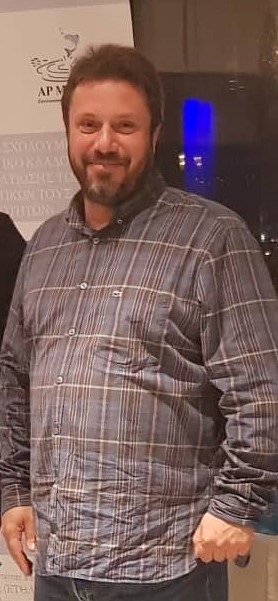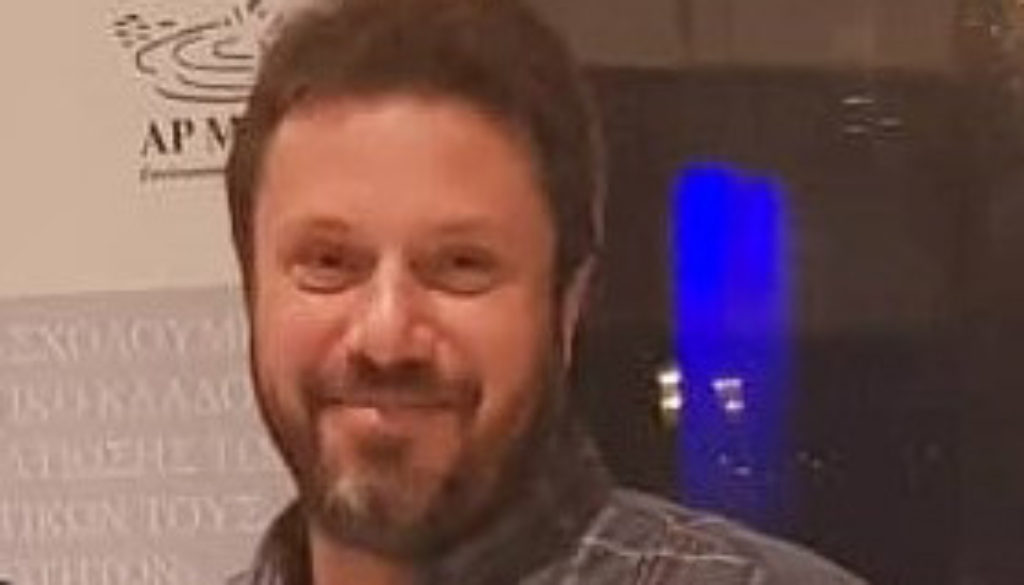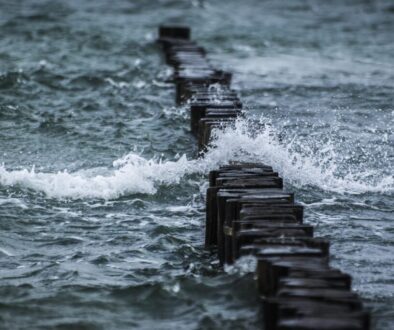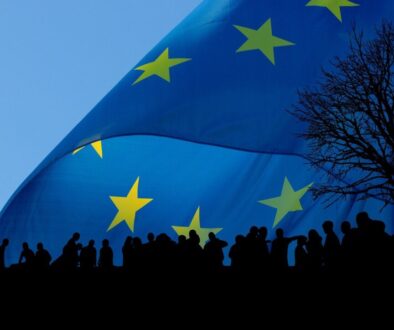LIFE welcomes Antonis Petrou, a Marne Biologist from Cyprus who works closely with the Pan Cypriot Association of Professional Coastal Fishermen, a member association of LIFE.
 Antonis recently joined the LIFE Team as Project Manager for a new project in Cyprus. The project aims to engage small scale low impact fishers in the co-management of a Marine Protected Area in Chrysochou Bay through setting up a co-management committee with the competent authorities.
Antonis recently joined the LIFE Team as Project Manager for a new project in Cyprus. The project aims to engage small scale low impact fishers in the co-management of a Marine Protected Area in Chrysochou Bay through setting up a co-management committee with the competent authorities.
The project forms part of a larger Mediterranean wide programme supported by the MAVA Foundation and coordinated by the WWF to boost resilience in the Mediterranean Sea through scaling up co-managed and financially sustainable No-Take Zones (NTZs) and MPAs.
- Antonis, as a professional Marine Biologist, you have a strong association with the sea. What motivated you to become a Marine Biologist and to work with fishers?
During my first week at University, where I was studying Biological Sciences, we were asked to do a presentation.
By chance I got assigned a subject related to squid….it intrigued me, I spent hours researching this and got hooked.
With the Fisherman and PAPF (Pancypriot Association of Professional Fisherman) here in Cyprus, my collaboration started very early in my carrier. When I returned from University in 2000, I started working as an external associate and diver at the Department of Fisheries. The Director at that time wanted someone to run a small Leonardo Da Vinci project for Vocational Training of Fisherman for Cyprus and asked if I would be interested to run it for PAPF. My collaboration with the association started from there.
- What attracted your interest in LIFE, and to work with the organization?
It was clear from the beginning when I heard about LIFE through Mediterranean Advisory Council (MedAC), where I represent PAPF, that involvement with this association was something that could potentially benefit PAPF, to whom I am the Scientific Advisor. Meeting Marta Cavallé and talking about what actually LIFE does and how others are benefiting, it was clear that this was a way forward to include PAPF in a wider network of small scale fishers (SSF), who have shared problems and issues in other countries. The voice of SSF up to a few years ago was not heard but now there is a total change at EU level. The next years will be interesting with regards to management of SSF and collaborating with LIFE will empower and give a voice to PAPF beyond the borders of Cyprus.
- For several years you have worked with the Pan Cypriot Association of Professional Coastal Fishermen (PAPF). Can you tell us something about professional fishing in Cyprus, the importance of the sector, and about the kind of work that you do with the association?
PAPF is the association that represents all professional SSF on Cyprus. This includes full time and part time professionals with vessels under 12 metres who primarily use nets, longlines, traps and handlines to make a living. There are 327 professional small scale coastal licences in Cyprus. Although the sector is not big it is an integrated part of the economy and this traditional way of life provides livelihoods to coastal communities of the island.
As with most Mediterranean small scale fisheries, the fishery here is a mixed species fishery with the main species being Spicara smaris, Boops boops, Siganus rivulatus, Sparisoma cretence and Mullus sp. The main problems facing fisherman are the increasing presence of invasive alien species such as toxic pufferfish and lionfish, interaction with protected and endangered species such and turtles and dolphins and to a lesser extent seals, and an ever-decreasing abundance of fish due to an oligotrophic and overfished environment.
My work with PAPF is in an advisory capacity. I have offered my services pro bono since 2012 in an official capacity. I collaborate mainly with the President of the association on a daily basis but also with the committees of the association in meetings and in discussion at a Governmental Level. I represent the association in the MedAC.
- The project that you will manage aims to engage fishers in the co-management of an MPA in Chrysochou Bay, building on the work already undertaken by the Pan Cypriot Association. Please can you tell us something about Chrysochou Bay, and why it is important to establish a co-managed MPA there?
Kakoskali MPA was established 2 years ago as a small MPA through a bottom up approach with collaboration between the small scale fisherman of Latsi (a village in Chrysochou bay), the NGO Enalia Physis and the Fisheries Department. This area is in a relatively remote area in the north west of the island. The fisherman want to expand the effectiveness of the MPA by co-managing the area with the authorities, local stakeholders and NGO’s so that the laws are implemented, correct rules and regulations are decided upon and adhered to so that the potential benefits of the MPA come into fruition. They do not want this to be just a MPA on paper, but a fully functioning area where the environment and its components are protected and, in this way, so too the livelihoods of the fishermen and other users.
- Due to the Covid 19 pandemic, the past few months have been a challenging time for small-scale fishers around the world, with stringent hygiene measures in force and the collapse of markets. How have the fishers fared in Cyprus during this time? How have they managed to survive, and what are their prospects over the coming period?
Cypriot fisherman have been primarily affected due to the decrease in demand for fish which are highly prized in Cyprus. The severe reduction in the tourist industry which is important to the local economy, plus all the measures relating to closure and reduced capacity of fish taverns and restaurants, in particular have affected the ability of the fishermen to distribute their produce. The Department of Fisheries has come out with funded plans twice in 2020 for cessation of fishing activities. These have been welcomed by the vast majority of fisherman, albeit worth only a relatively small amount per month.
- What are the first steps to be undertaken in Chrysochou Bay towards co-management of the MPA?
Firstly we have to engage in a conversation with the association at local but also at National Level (with the inclusion of the Fisheries Department) in order to understand the level at which the idea of co-management will be implemented. Additionally, a discussion must be held regarding responsibilities that the association is willing to undertake and that the Fisheries Department is willing to share. Covid 19 restrictions, however, are making it very difficult to complete part of the work in 2020.




